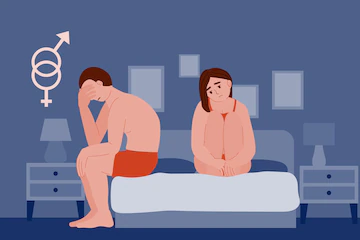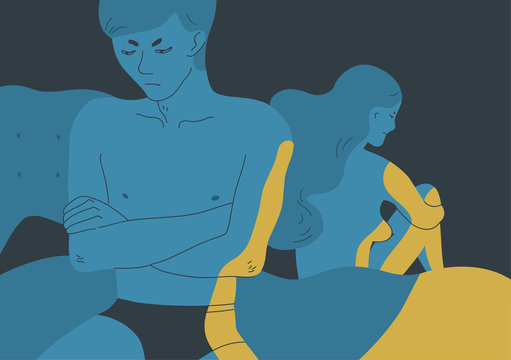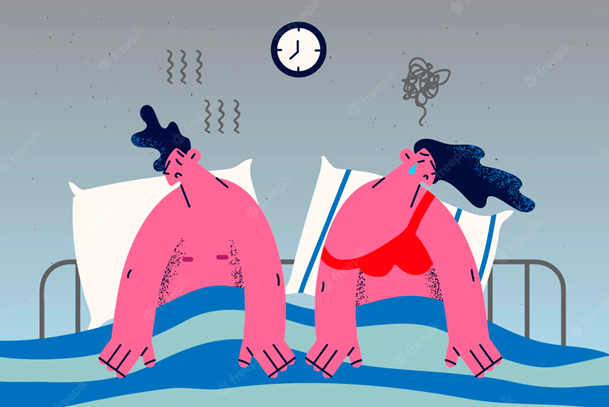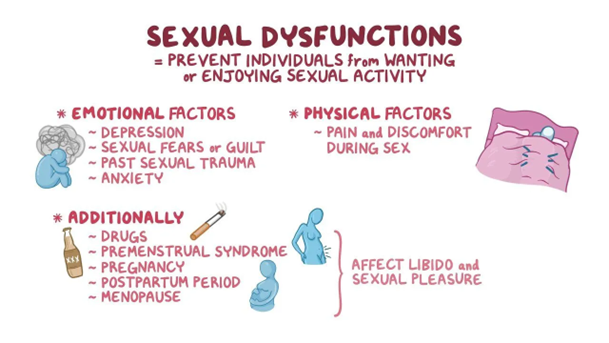Destigmatizing The Intersection Of Sexual Dysfunction And Anxiety
Sexual dysfunction is an amalgamation of a lot of response ranging from lack of desire to formation of relationships and troubles with intimacy. Sexual dysfunction is a result of different physical and mental space of an individual. For example, a person with obesity and heart diseases might be prone to sexual dysfunction in an individual. Other causes also include conditions like high blood pressure, sexual inhibitions, lack of self-love or difficulty of accepting one’s body the way it is. However, the idea of mental space of an individual is less explored in the mainstream discussion about sexual dysfunction.

Sexual Dysfunction and Anxiety
The advent of the pandemic has provided humans with enough evidence and time to retrospect the way in which we lead our lives. Conversations around mental health are coming at the forefront because of the rise in anxiety and depression. Anxiety explores one of the most neglected ways of understanding of sexual dysfunction. This is precisely because of the myopic lens of looking sex only in terms of physicality of the act. However, sexual relationships are more than ‘erogenous zones’ within the body.
Sex requires partner(s) to be mindful of each others’ presence and fully ‘soak in’ the pleasure that is being given to people or received by them. Anxiety, therefore, hinders the very feeling of mindfulness or the feeling of being fully ‘present’. It’s like the partner(s) are trying to bake a beautiful cake together but anxiety is leading one person to think about black hole. This obviously disturbs the rhythm and synchronous nature of the act. Sexual dysfunction and anxiety need to examined in close relationship with each other because they share a lot of commonalities ranging from stigmas associated with them, physical lack of expressions or feelings of alienation.

What role does societal expectations play in aggravating Sexual Dysfunction or Anxiety?
The lack of dialogue and conversations around sexual dysfunction leave a person feeling frustrated and hopeless because society gives little to no escape from the vicious circle of self-loathing. The idea of looking at sexual pleasure only in terms of exercising reproductive capacities forms the major reason for the feeling of isolation. The lack of privacy also contributes to a significant extent.
People with a vagina are doubly marginalized in examination of underlying signs of sexual dysfunction because of moral policing, strong sense of surveillance. People with a penis, however, suffer due to the idea of ‘toxic manliness’ associated with ‘sexual stamina, penis sizes and feelings of shame around them. Societal expectations are formed with rigid rules and the talk around sexual dysfunction is largely avoided due to unarrival of suitable marriage proposals for people.
Sexual dysfunction and anxiety are a result of families that argue, possess a rigid patriarchal structure and put people with a penis on the pedestal that refrains them from seeking help. People with a vagina, however, are objectified to an extent that any issue with the ‘vagina’ is met with denial and superstitions. Hence, it’s time that the rules are challenged and we envision a society that is supportive, responsive and embraces inclusivity.

How and where to seek help and heal?
People with anxiety should definitely be in touch with their respective therapists throughout the process of physical healing of Sexual Dysfunction. This will not only aid the treatment but will enhance the quality of sex life in the longer run. According to mayoclinic.org, doctors perform a pelvic exam along with examination of medical and sexual history of a people with vagina. In case of people with a penis, my.clevelandclinic.org suggests that doctors conduct a variety of tests ranging from complete blood count (CBC) to lipid profile tests and thyroid function tests as well. It is important to visit a doctor to get examined without any feeling of shame because it is absolutely normal and courageous to seek help.
The family and close friends can also be a strong sense of support in order to battle with two different feelings relating to the mind and the body at the same time. Talking with people and engaging with a form of self-expression can go a long way in the treatment of Sexual Dysfunction and more so with experiences of chronic anxiety as well.

Conclusion
The normalizing of Sexual Dysfunction as just another disorder that requires treatment and help will make people suffering from it feeling included. This will not only alleviate the presence of anxiety to a great extent but will reduce the stigma pertaining to Sexual Dysfunction and sexual health issues as well. Imparting of proper Sex Education and ensuring a safe environment to discuss inhibitions will certainly the suffering one faces in isolation. People with anxiety should definitely be heard more because the issues are not limited to just the body for most of them.
The formation of communities of people with similar issues will lead to empathetic responses and a sense of understanding of the brutality or the intensity of experiences in certain cases. It is time that sexual lives of people are looked at in terms of the holistic health of an individual so as to ensure optimum experience of pleasure while being mindful and calm throughout the experience of the act.
Author

